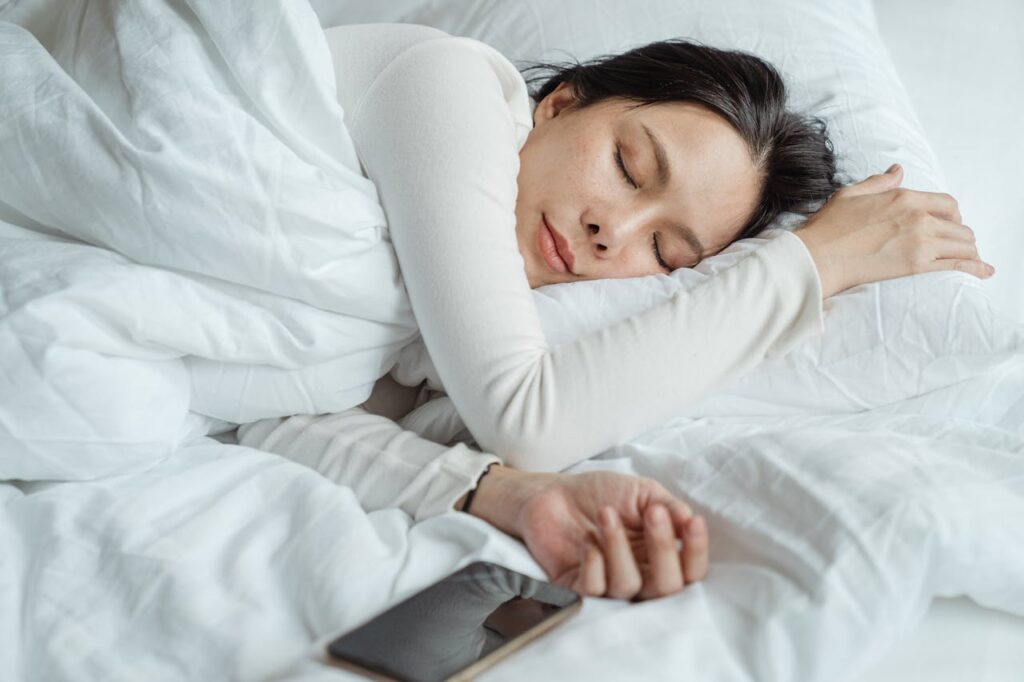Getting quality sleep isn’t just about feeling refreshed in the morning—it’s fundamental to your physical health, mental wellbeing, and overall quality of life. If you’re struggling with poor sleep quality or finding it difficult to fall asleep, you’re not alone. Millions of people worldwide experience sleep difficulties that impact their daily performance and long-term health.
This comprehensive guide will provide you with evidence-based strategies to improve your sleep hygiene, optimize your bedroom environment, and develop sustainable habits that promote better sleep naturally. Whether you’re dealing with occasional sleeplessness or chronic sleep issues, these proven techniques will help you achieve the restorative rest your body needs.
Understanding the Importance of Quality Sleep
Before diving into specific strategies, it’s crucial to understand why good sleep matters. Quality sleep affects every aspect of your health, from immune function and hormone regulation to cognitive performance and emotional stability. Adults typically need 7-9 hours of sleep per night, but the quality of that sleep is just as important as the quantity.
Poor sleep has been linked to numerous health issues, including obesity, diabetes, cardiovascular disease, weakened immune function, and mental health disorders. By prioritizing sleep hygiene and implementing the strategies outlined below, you can significantly improve both your sleep quality and overall health outcomes.
Establish a Consistent Sleep Schedule
Maintain Regular Sleep and Wake Times
One of the most effective ways to improve your sleep quality is to maintain a consistent sleep schedule. Your body’s internal clock, or circadian rhythm, thrives on predictability. Going to bed and waking up at the same time every day—even on weekends—helps regulate this natural cycle.
Key strategies for sleep schedule consistency:
- Set a fixed bedtime that allows for 7-9 hours of sleep
- Use an alarm to wake up at the same time daily
- Avoid sleeping in on weekends by more than one hour
- Gradually adjust your schedule by 15-30 minutes if changes are needed
Limit Daytime Napping
While short naps can be refreshing, excessive or late-day napping can interfere with nighttime sleep. If you must nap, follow these guidelines:
- Keep naps under 30 minutes
- Avoid napping after 3 PM
- Create a comfortable but not overly cozy nap environment
- Set an alarm to prevent oversleeping
Optimize Your Sleep Environment

Create the Ideal Bedroom Conditions
Your bedroom environment plays a crucial role in sleep quality. The optimal sleep environment should be cool, dark, and quiet, promoting the natural drop in body temperature that occurs during sleep.
Temperature control:
- Maintain bedroom temperature between 65-68°F (18-20°C)
- Use breathable bedding materials like cotton or bamboo
- Consider a fan or air conditioning for consistent temperature
- Wear lightweight, moisture-wicking sleepwear
Light management:
- Install blackout curtains or blinds
- Use an eye mask if complete darkness isn’t possible
- Remove or cover electronic devices with LED lights
- Consider a sunrise alarm clock for natural wake-up lighting
Noise reduction:
- Use earplugs or a white noise machine
- Address sources of noise like creaky floors or doors
- Consider soundproofing materials for persistent noise issues
- Keep electronic devices on silent mode
Invest in Quality Sleep Equipment
Your mattress, pillows, and bedding significantly impact sleep comfort and quality. Consider these factors when evaluating your sleep setup:
- Mattress: Replace every 7-10 years; choose firmness based on sleep position and personal preference
- Pillows: Replace every 1-2 years; select height and firmness to maintain proper neck alignment
- Bedding: Use breathable, comfortable materials that regulate temperature
Manage Light Exposure Throughout the Day

Maximize Bright Light During Daytime
Proper light exposure helps regulate your circadian rhythm and improve sleep quality. Natural sunlight is the most effective way to maintain a healthy sleep-wake cycle.
Daytime light strategies:
- Get 15-30 minutes of direct sunlight within an hour of waking
- Spend time outdoors during lunch breaks
- Work near windows when possible
- Use bright light therapy lamps during winter months or in low-light environments
Reduce Blue Light Exposure in the Evening
Blue light from electronic devices can suppress melatonin production, making it harder to fall asleep. Implement these evening light management practices:
- Stop using electronic devices 1-2 hours before bedtime
- Use blue light filtering glasses or apps after sunset
- Dim household lights 2-3 hours before sleep
- Choose warm, amber lighting for evening activities
Optimize Your Diet and Eating Habits
Timing Your Meals for Better Sleep
What and when you eat can significantly impact your sleep quality. Your digestive system needs time to process food before you lie down for the night.
Meal timing guidelines:
- Finish large meals 3-4 hours before bedtime
- Avoid spicy, fatty, or acidic foods in the evening
- If hungry before bed, choose light snacks like a small portion of nuts or yogurt
- Stay hydrated throughout the day but reduce fluid intake 2 hours before sleep
Limit Sleep-Disrupting Substances
Certain substances can interfere with your ability to fall asleep or maintain quality sleep throughout the night.
Caffeine management:
- Avoid caffeine 6-8 hours before bedtime
- Be aware of hidden caffeine sources (chocolate, some medications)
- Consider switching to decaffeinated options in the afternoon
- Monitor your individual caffeine sensitivity
Alcohol considerations:
- Limit alcohol consumption, especially in the evening
- Avoid using alcohol as a sleep aid
- Allow 3-4 hours between drinking and bedtime
- Stay hydrated if you do consume alcohol
Incorporate Regular Physical Activity

Exercise for Better Sleep Quality
Regular physical activity can significantly improve sleep quality, reduce the time it takes to fall asleep, and increase deep sleep duration. However, timing and intensity matter.
Exercise timing recommendations:
- Complete vigorous exercise at least 3-4 hours before bedtime
- Engage in moderate exercise earlier in the day
- Try gentle activities like yoga or stretching in the evening
- Aim for at least 150 minutes of moderate exercise per week
Age-Specific Exercise Considerations
Different life stages may require adjusted exercise approaches for optimal sleep benefits:
- Young adults: High-intensity workouts earlier in the day
- Middle-aged adults: Consistent moderate exercise routine
- Older adults: Low-impact activities and balance exercises
- Shift workers: Flexible exercise timing based on work schedule
Develop Effective Stress Management Techniques
Evening Relaxation Practices
Chronic stress and anxiety are major contributors to sleep difficulties. Developing a consistent evening routine that promotes relaxation can significantly improve your ability to fall asleep and stay asleep.
Relaxation techniques:
- Practice deep breathing exercises or meditation
- Try progressive muscle relaxation
- Listen to calming music or nature sounds
- Read a book or engage in other quiet activities
- Write in a journal to process daily thoughts and concerns
Technology and Sleep Hygiene
Modern technology can both help and hinder sleep quality. Use technology mindfully to support better sleep:
Helpful technology:
- Sleep tracking apps to monitor patterns
- Meditation and relaxation apps
- White noise or nature sound apps
- Smart thermostats for optimal temperature control
Technology boundaries:
- Create a charging station outside the bedroom
- Use analog alarm clocks instead of phones
- Implement a “digital sunset” 1-2 hours before bed
- Consider airplane mode instead of complete device shutdown
Address Lifestyle-Specific Sleep Challenges
Sleep Solutions for Different Life Stages
Parents and caregivers:
- Coordinate sleep schedules with partners
- Use baby monitors with minimal light emission
- Practice power napping when possible
- Maintain consistent routines despite disruptions
Students and professionals:
- Create study/work cutoff times
- Use time-blocking for better schedule management
- Prioritize sleep during high-stress periods
- Develop portable sleep hygiene practices for travel
Shift workers:
- Use blackout curtains for daytime sleep
- Maintain consistent sleep duration regardless of timing
- Consider light therapy to adjust circadian rhythms
- Communicate sleep needs with family members
Natural Sleep Aids and Supplements
Evidence-Based Sleep Supplements

While lifestyle changes should be your first approach, certain supplements may provide additional support for better sleep quality.
Melatonin:
- Start with 0.5-1mg, 30 minutes before desired sleep time
- Use consistently for best results
- Consult healthcare providers for long-term use
- Choose third-party tested products
Other beneficial supplements:
- Magnesium (200-400mg before bed)
- L-theanine (100-200mg in the evening)
- Valerian root (300-600mg before bedtime)
- Chamomile tea or supplements
Herbal and Natural Remedies
Traditional remedies can complement modern sleep hygiene practices:
- Lavender essential oil for aromatherapy
- Passionflower tea before bedtime
- Warm milk with honey (contains tryptophan)
- Tart cherry juice (natural source of melatonin)
When to Seek Professional Help
Recognizing Sleep Disorders
Sometimes, persistent sleep problems indicate underlying sleep disorders that require professional treatment. Consider consulting a healthcare provider if you experience:
- Chronic difficulty falling asleep (taking more than 30 minutes regularly)
- Frequent nighttime awakenings
- Loud snoring or breathing interruptions during sleep
- Excessive daytime fatigue despite adequate sleep time
- Restless legs or periodic limb movements
- Persistent insomnia lasting more than a few weeks
Sleep Study and Medical Evaluation
A sleep study may be recommended to diagnose conditions such as:
- Sleep apnea
- Restless leg syndrome
- Narcolepsy
- Circadian rhythm disorders
FAQs
What is the 10-3-2-1-0 rule for sleep?
The 10-3-2-1-0 rule is a simple framework for better sleep hygiene:
- 10 hours before bed: No more caffeine
- 3 hours before bed: No more food or alcohol
- 2 hours before bed: No more work or stressful activities
- 1 hour before bed: No more screens or electronic devices
- 0: The number of times you hit the snooze button
How long does it take to see improvements in sleep quality?
Most people begin to notice improvements in sleep quality within 1-2 weeks of consistently implementing good sleep hygiene practices. However, significant changes in sleep patterns and overall sleep quality may take 4-6 weeks to fully establish. Be patient and consistent with your new habits.
Can I make up for lost sleep on weekends?
While weekend sleep-ins can help reduce some effects of sleep debt, they can’t completely compensate for chronic sleep deprivation. Additionally, dramatically different weekend sleep schedules can disrupt your circadian rhythm, making it harder to maintain good sleep during the week. It’s better to maintain consistent sleep and wake times throughout the week.
Take Action for Better Sleep Tonight
Improving your sleep quality is one of the most impactful changes you can make for your overall health and wellbeing. Start by implementing 2-3 strategies from this guide, focusing on consistency rather than perfection. Remember that developing new sleep habits takes time, so be patient with yourself as you work toward better rest.
Begin tonight by establishing a consistent bedtime, optimizing your bedroom environment, and creating a relaxing pre-sleep routine. Your body and mind will thank you for prioritizing the restorative power of quality sleep.
If you continue to experience sleep difficulties despite implementing these strategies, don’t hesitate to consult with a healthcare provider or sleep specialist. Quality sleep is not a luxury—it’s a necessity for optimal health and performance in all areas of your life.



